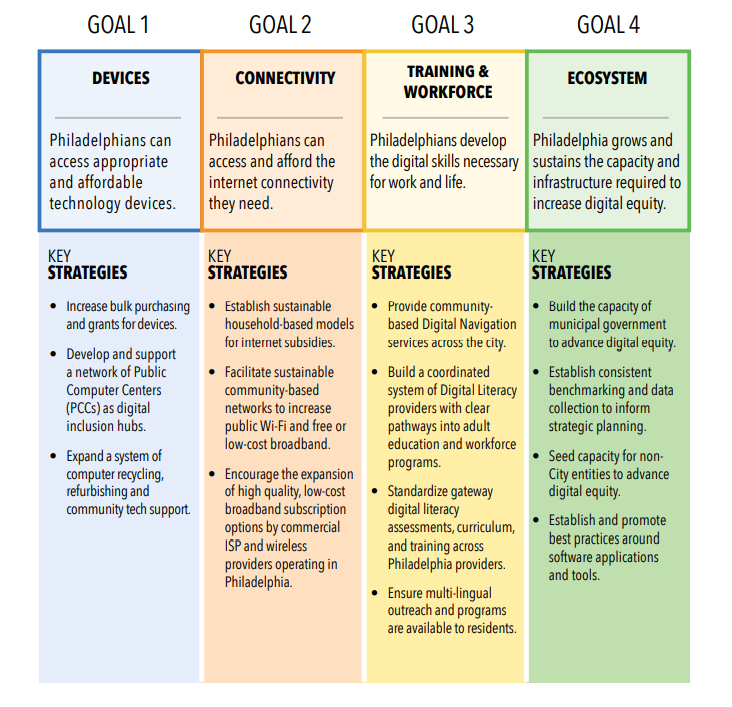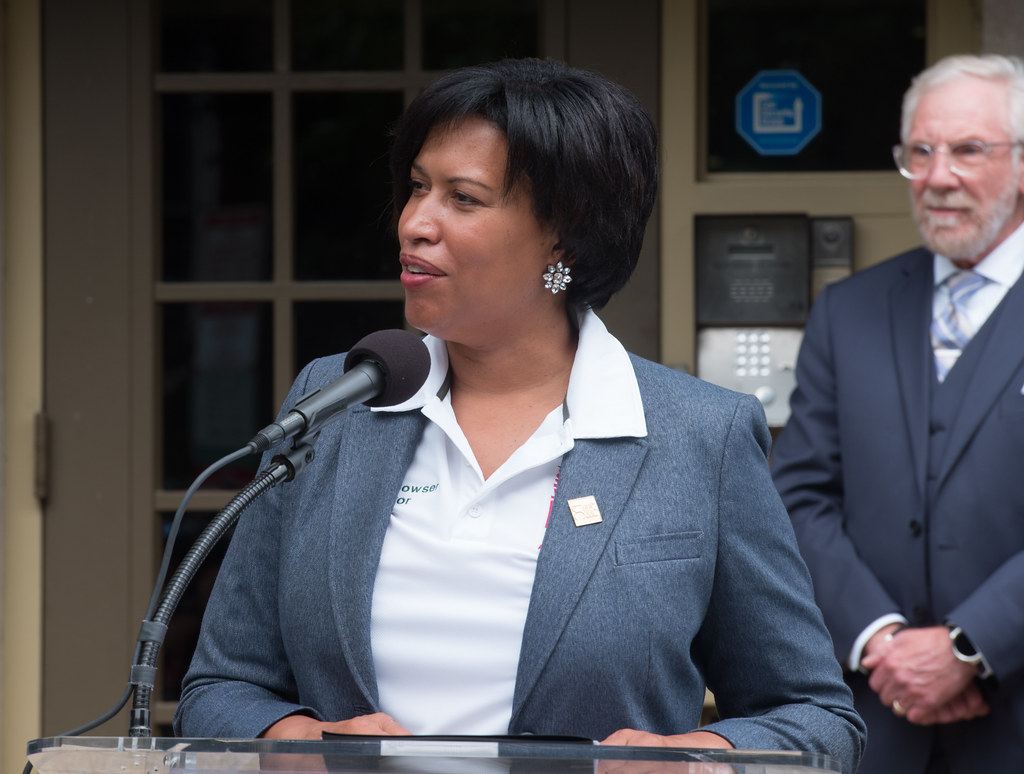
Photo: Jenna-Beth Lyde / PFD
Philadelphia releases five-year digital equity plan
21 February 2022
by Sarah Wray
The City of Philadelphia has established an executive order and released a five-year plan to address the multifaceted barriers to digital access.
Philadelphia’s first Digital Equity Plan lays out key goals and strategies to tackle affordability and availability of broadband and devices, as well as obstacles related to language, race, digital literacy skills, disabilities, and more.
“The pandemic has shown that internet and device access is essential for daily living – including accessing healthcare and government services, closing the homework gap, and supporting a 21st-century workforce,” said Mark Wheeler, the city’s Chief Information Officer.
“The creation of the Digital Equity Plan and the official decree of the policy will help the city better address the various issues that contribute to the digital divide. Philadelphia’s digital equity work now has a strong foundation through better resourcing, strategies, goals, and an overall understanding of the city’s needs.”
Affordability
According to data from the city, 16 percent of Philadelphia households lack a high-speed broadband internet service, compared to 30 percent in 2019. Affordability was identified as the key barrier, with over three-quarters of low income residents saying that paying over US$20 a month for internet would be too expensive. Only 75 percent of households have a working desktop or laptop computer, and almost a third of workers have limited or no digital skills.
“Philadelphia does not lack for access to broadband internet. Fibre and coaxial cables sprawl through underground conduits across the city, nearly mirroring the network of water and gas lines,” said Wheeler. “Yet Philadelphia experiences a digital divide between households that can consistently afford subscriptions to high quality broadband services and those who cannot – the ‘subscription vulnerable’.
“The divide is even starker for residents who experience periodic homelessness or housing insecurity, both [of] which elevate the challenges of selecting and maintaining even the most basic and low-cost internet service.”
The Digital Equity Plan lays out four key goals around ensuring residents can access appropriate and affordable devices and connectivity, and develop the digital skills necessary for work and life. The city will also work to ensure the right capacity and infrastructure are in place to increase digital equity.

Finding the funding
The plan also outlines a goal to create a revenue-generating stream to support digital equity programmes. The city will identify federal and state funding streams and could develop an investment strategy using city assets and “other revenue-generating methods” to ensure ongoing funds are available for digital equity initiatives.
“This city-generated revenue will allow flexibility and can be used to support initiatives and programmes not covered by federal or state funding, such as ensuring that digital equity programmes are available and open regardless of immigration status or other barriers,” the plan states.
The City of Philadelphia is prohibited by state law from establishing a municipal network but could leverage its assets through public-private partnerships to enable community-based organisations or small and Minority, Women, Disadvantaged Business Enterprise (MWDBE) local businesses to set up and run neighbourhood wireless networks for home access.
The Digital Equity Plan builds on initiatives such as Philadelphia’s Keyspot network of public computing centres and the Digital Literacy Alliance, which was established in 2016 and has distributed over US$1 million in funds. PHLConnectED was launched in 2020 in response to the pandemic and has provided over 19,000 free internet connections to pre-K–12 households.
Mayor Jim Kenney said: “As the city works to achieve digital access for all Philadelphians, we will continue to invest in and support resources within the Office of Innovation and Technology to drive this work as well as expand cross-departmental collaboration to implement the policy and plan.”
The Digital Equity Plan was created with input from dozens of community members, advocates, and other stakeholders engaged in digital inclusion work, and was also informed by the results of the 2021 Philadelphia Household Internet Assessment Survey.












